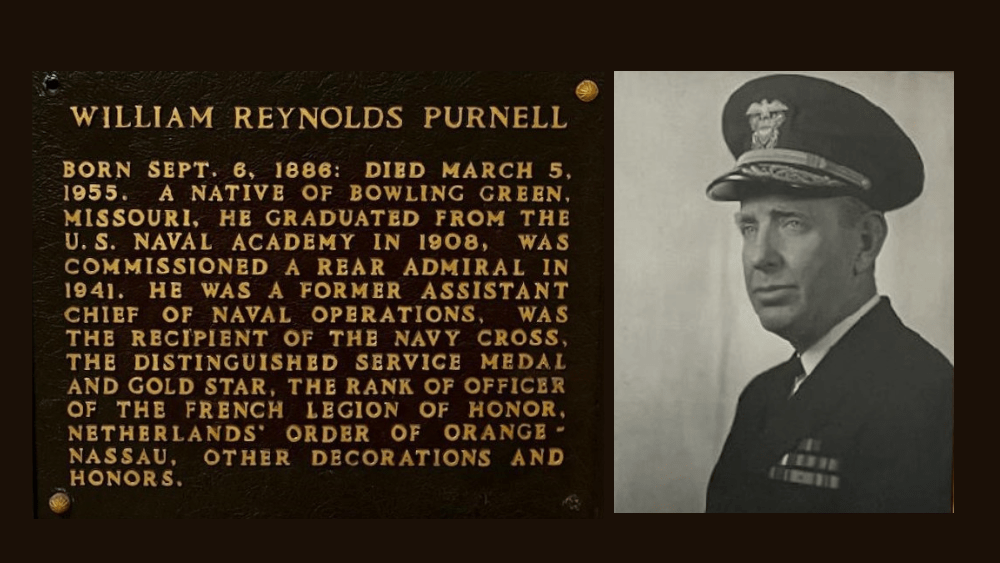
BOWLING GREEN, Mo.– A Bowling Green native was instrumental in development of the atomic bomb, and he wrote a blunt message on one of them.
William Reynolds Purnell was born Sept. 6, 1886, and graduated from the Naval Academy 1908. He was a classmate of Louisiana businessman and future Missouri Gov. Lloyd Stark.
During World War I, Purnell was a destroyer captain who helped protect convoys from German submarines, for which he was awarded the Navy Cross.
A promotion to rear admiral came in November 1941, a month before the Japanese attack on Pearl Harbor forced America into World War II.
In September 1942, Purnell was named to the Military Policy Committee, the three-member panel that coordinated development of the bomb.
The committee discussed dropping a bomb on Nazi Germany, but chose Japan. The reasoning was that if the weapon failed to detonate and was recovered, the Nazis would be better equipped to use it in their own quest to build a device.
On July 25, 1945 – just nine days after a test in the New Mexico desert – the green light was given for the mission. Purnell went to the island of Tinian to help direct final preparations. He was the first to suggest that the war would end only if two bombs were dropped, one right after the other.
The first explosive, nicknamed Little Boy, was dropped over Hiroshima on Aug. 6. Three days later, Fat Man fell on Nagasaki.
Just before the plane took off for Nagasaki, Purnell had a question for flight commander Charles Sweeney.
“Young man, do you know how much that bomb cost?” the 58-year-old admiral asked.
The 25-year-old Massachusetts native said he didn’t. Purnell told the pilot it was about $2 billion, and then inquired if Sweeney had calculated the cost of the B-29 he would be flying. Sweeney knew it was more than a half-million dollars.
“I’d suggest you keep those relative values in mind for this mission,” Purnell said. “See that we get our money’s worth.”
There’s a tradition of putting messages on bombs that exists to this day, and Purnell took part. He pulled out a marker and scribbled a salutation on Fat Man. It was meant for the Japanese emperor.
“A second kiss for Hirohito,” the message read.
After the war, Purnell continued to oversee nuclear testing. He died on March 5, 1955, in Palo Alto, Calif.
A portrait of the admiral can be found along the north wall on the first floor of the Pike County Courthouse in Bowling Green.